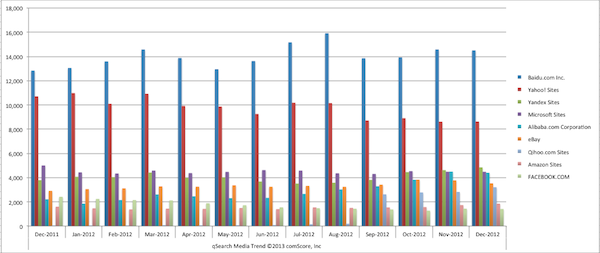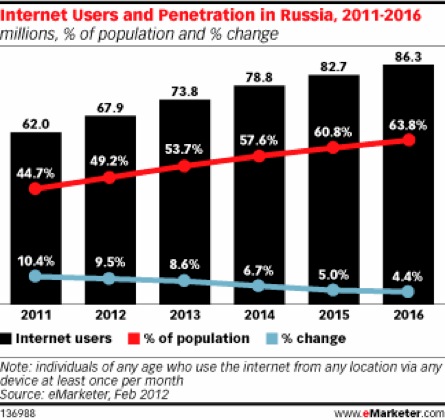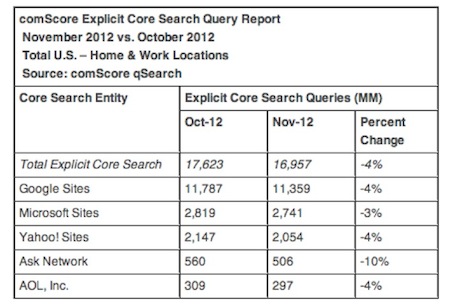Yandex surpassed Microsoft on the number of monthly search queries worldwide in November and December 2012, according to a recently released comScore qSearch report. Microsoft sites processed 4.477 billion queries and Yandex did 4.844 billion.
As you’d expect, Google still reigned supreme with 114.73 billion search queries and a 65.2 percent market share. China search giant Baidu was second globally with 14.5 billion (8.2 percent), and Yahoo came in third with 8.63 billion (4.9 percent).
How Embarrassing: Did Yandex Just Run Over Bing?
Microsoft sites, includes Bing (which processes 92 percent of all queries to Microsoft sites according to comScore), plus other Microsoft properties recognized as search sites by comScore, including MSN, Windows Live (i.e., Hotmail) and others. Yandex doesn’t sell software – all it has is Yandex search with some verticals (its creative e-tailers street prices search, real-estate search and others).
Now that is embarrassing! You would think with all of the money, might and power of Microsoft, they’d be higher in total search volume. So either Yandex is kicking some serious butt or Bing is slowing down.
Inside the Search Numbers: What’s Happening Globally?
Lets take a look at global search trends:

As you can see in the graph (Google purposely removed for context), Yandex began passing Microsoft in November, but the difference was tiny and initially it could have perceived looking like a statistical error.
There are only two out of Top-5 search entities which grew higher last year: Baidu (13 percent) and Yandex (27.8 percent) while the total number of search queries worldwide decreased by 4.6 percent since December 2011.
Exploring this deeper, reveals a few interesting data points. The audience growth continues to evolve and grow in Russia, however, global growth in Western markets where Microsoft has most of their share has slowed down.
The following eMarketer graph shows the comparative growth of Internet user penetration in Russia:

Looking at U.S. only comScore qSearch reports shows a decline in the volume of search queries.

Summary
You can speculate all day about what’s happening here. Do Russians just search more? Are Russians searching more because they don’t like the results? Are they gaining market share in countries like Turkey or the Ukraine? Who wins with unique users?
Regardless of all that, I wasn’t expecting to see Yandex, which doesn’t have nearly the marketing budgets of Microsoft, surpass them in global search queries by the end of 2012. Nothing better then seeing incredibly talented underdogs race past one of the biggies.


